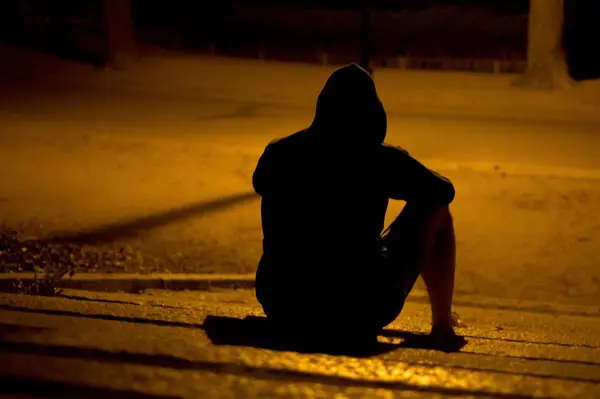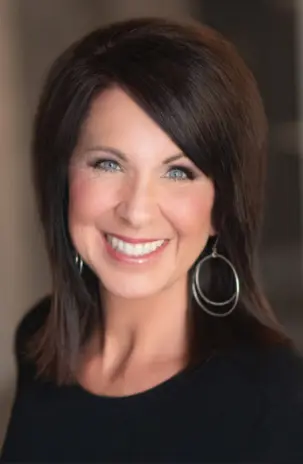by Michelle Watson Canfield, PhD, LPC
Father’s Day is an occasion to celebrate, no doubt about it. It might even be a day for dads to recommit themselves to loving and investing in their children in meaningful ways. That’s what all of us are about at fathers.com.
But that doesn’t tell the whole story. There are a surprising number of men and women who get to this time of year and think,
I hate Father’s Day.

Maybe you’re one of many who’ll be holding their breath leading up to that weekend in June, wishing there was no such thing as a holiday that honors, highlights, and heralds fathers. Or maybe, for you, that’s putting it mildly. Your story might be one where you actually hate Father’s Day because you feel a heavy weight of emotions (that you may or may not be in touch with, but they’re under the surface, nonetheless) as you experience the intense nuances of this day.
And that’s why this is a worthwhile departure from our usual attempts to empower and equip dads. This is a side of fathering where real pain lives, and this is the real place where maybe your story needs to be acknowledged. At least to yourself.
The reason I’m writing to those of you who dread Father’s Day is because I love dads.
At first glance that might not make sense, so let me be more specific.
I love healed and whole dads.
I love dads who are imperfect and admit it without hiding, excusing, shaming or blaming.
I love dads who are humble and willing to disclose weakness.
I love dads who are vulnerable, who say they’re sorry and make amends.
I love dads who intentionally express love every day to their daughters and sons.
And I love dads who count it a privilege and a responsibility to help build a bridge to God as Father for their kids.
The bottom line is that I want to see fathers step up and take action by doing their own work. If not for themselves, at least for the sake of their daughters and sons.
All of this goes along with the fact that as a licensed professional counselor, I’ve devoted the last 30-plus years to walking alongside brave individuals who admit they have pain and then ask for help. I long for the day when healing and wholeness become top priorities for everyone, especially fathers. This translates to men being courageous enough to look within, to address their inner world, and to honestly face the impact all of it has on their relationships.
I have great empathy for those of you who didn’t have a father who was willing or able to do those things. Thus, by default, you’d rather ignore this day as it serves as an annual reminder that your dad didn’t do his healing work and you suffered because of his woundedness.
Sadly, I believe a large sector of our society have denied the impact of their childhood experiences on their current ways of living. Many have even chosen to live a duplicitous life and dissociated from their pain. Consequently, they’ve normalized their negative ways of responding and interacting, and have adjusted their decisions, choices and relationships accordingly. Because they’ve carried their emotional and relational pain into adulthood, they often end up transferring their unhealed wounds onto their kids and others around them.
On this Father’s Day if you feel triggered, overwhelmed, flooded, angered, saddened, and/or confused because your dad abandoned, abused, neglected, rejected or harmed you in some way, I want you to know that I’m very sorry you’ve been hurt. And I implore you to hold to this truth:
This is your dad’s stuff and not yours, even though he projected it onto you and now you’re left to deal with the impact.
I also want you to know that healing is possible. But you have to be willing to do the hard work.
If you’re ready to begin moving towards healing, I offer this four-step strategy if Father’s Day is one of the worst days of your year.
1. FEEL IT.
I love the adage, “What you don’t feel, can’t heal.” Start by acknowledging your real emotions about your dad (whether he’s alive or deceased, because we all know that a father’s imprint stays alive inside us forever). The flip side is that if you try and ignore your uncomfortable or negative feelings, you’ll most likely discover that your responses will come out another portal, such as overreacting, overcompensation, or overindulgence in other areas.
2. WRITE IT.
This is a common practice I use with my counseling clients that allows for honest, raw expression of what is inside. Let your pen on paper or fingers on keyboard flow freely as you tell your dad what you’ve never been able to say before—about your sadness, anger, fear or confusion. Try not to allow your internal critic to filter or qualify your words. Write as if you’re not giving the letter to him, because the benefit to you is just getting it out.
3. TELL IT.
Now it’s time to share your story with a trusted friend or confidant. There is power in having a safe witness to your pain. More times than not, I’ve seen that it’s easier for all of us to minimize, normalize, and discount the profound impact that our family of origin is having on our current responses and functioning. Therein lies the significance of telling our stories to another person who can listen and validate while providing an outside perspective.
I realize this takes a big dose of courage to “share family secrets” or “air dirty laundry” outside of your family system. But I’ve seen the personal benefit to those who do this as they open the vault and vent to a confidential source. Reach out to someone and set up a time to talk before you change your mind.
4. RELEASE IT.
This is the most challenging step in your journey to healing. Of course it’s easier said than done to let go of father wounds (what your dad did do) or father voids (what he didn’t do), which is why I’ve placed this one last.
This step is about letting go of the hurts or any vengeance you hold against your dad. This is another way of saying that you’re willing to move towards forgiveness. I actually wrote my doctoral dissertation on forgiveness and spent over a year basking in the research on this subject. What I learned and found helpful is that:
- forgiveness is a process, not a single event.
- forgiveness isn’t tolerating inexcusable behavior.
- forgiveness isn’t forgetting or justifying events or actions.
- forgiveness doesn’t mean there has to be reconciliation.
- forgiveness is a gift you give to yourself as you choose to stop rehearsing the hurt and release the grudge.
The reason forgiveness often doesn’t hold long-term is because there hasn’t first been a thorough understanding of the depth of the injuries, nor an evaluation of the ways those injuries have taken shape throughout our lifespan. It’s important to assess and honor our internal injuries in the same way a medical doctor assesses, diagnoses, and treats physical injuries.
This is why steps 1-3 above are vital to the process of dealing with father issues before the forgiveness process begins. Then you’ll be ready to start releasing the pain through feeling your feelings, writing a letter to your dad, sharing your story, and then handing everything over to God.
This is how you will make great strides toward healing so that you can be free. Your load will be lighter and you won’t have to carry it alone.
My hope is that by doing these four steps, you’ll not just survive Father’s Day this year, but that you’ll thrive today and in the days ahead.
Read more from Michelle at fathers.com here.

Dr. Michelle Watson Canfield is a licensed professional counselor, founder of The Abba Project, a 9-month group forum for dads of daughters (ages 13 to 30), and author of Let’s Talk: Conversation Starters for Dads and Daughters and Dad, Here’s What I Really Need from You: A Guide for Connecting with Your Daughter’s Heart (both available on Amazon and Audible). She also hosts a weekly radio program called “The Dad Whisperer,” which you can access as a podcast on her website and on iTunes, Spotify, and Google Play Music. Visit drmichellewatson.com for more information and to sign up for her weekly Dad-Daughter Friday blogs. You can also follow or send feedback on Facebook and Twitter.

